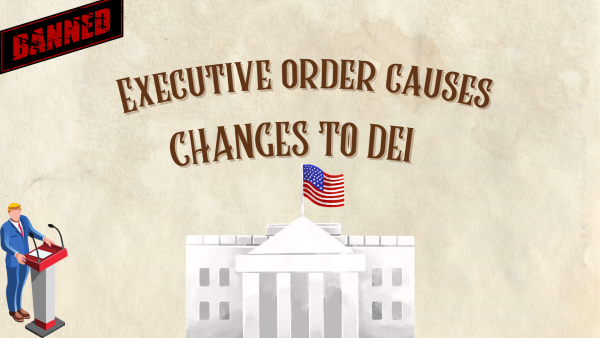Kneeling against standing: A perspective from one who kneels
“I stand to honor the promise the flag represents.
You kneel because that promise has been broken.
I stand to affirm my belief that all are created equal, and to fight alongside you for that promise.
You kneel because too few stand with you.
I stand because we can be better.
You kneel to remind us to be better.
I stand to honor all that have fought and died so that we may be free.
You kneel because not all of us are.
I stand because I can.
You kneel for those who can’t.
I stand to defend your right to kneel.
You kneel to defend my right to stand.
I stand because I love this country.
You kneel because you love it too.”
This poem was written by Politician Andrew Freborg in 2017. Freborg wrote the poem in response to the ongoing controversy between those who choose to stand and those who choose to kneel, during the National Anthem. The controversy began in 2016, when former NFL quarterback Colin Kaepernick sat for two games, then took a knee during the National Anthem to protest racial discrimination, specifically discrimination from law enforcement.
Kristen Stennett gave insight on her perspective on the matter. The interview began by Stennett responding to the poem by Andrew Freborg.
“It’s about fighting for something that we don’t have in America, as black people, which is equality,” Stinnett said in the interview Monday afternoon. “If I am a suspect of something the quality of care I’m going to get, compared to a white woman, is different. I’m automatically assumed hostile and aggressive, so the inequality is what he’s kneeling for.” Stinnett goes on to reference a line in Andrew Freborg’s poem that states: “I stand to affirm my belief that all are created equal…” Stinnett says “The affirmation to me, as black people, is that I matter and that I deserve equality. There has been a lot of police brutality exposed in the media lately and nobody has gotten justice, no one has paid for those crimes, and no one has paid for those murders. You get a slap on the wrist, you get paid leave, and you get your gun and badge back. The poem speaks true”
Stinnett continues by sharing her thoughts and feelings toward law enforcement. Expressing that when law enforcement interacts with an African-American person, law enforcement is “already aware and ready to deescalate the situation if you are African-American.”
“I do not think that is every cop,” she said. “Just a select few, who do have that fear or that racial bias, that are automatically on high alert and ready to shoot if need be, only because I am African-American. Which is crazy to me, I am a twenty-one-year-old women. Trust me, I am more scared of you than you are of me. I’m probably panicking because you pulled me over and I don’t want a ticket.”
While many people, like Stinnett, have begun following and supporting Kaepernick’s example, others have differing opinions; labeling his protest: unpatriotic, unconstitutional, disrespectful to the United States, the military, and it’s veterans.
However, Stinnett says: “No… The military isn’t the one allowing these injustices to happen. The military fights for our freedom of speech, for our right to stand, for our right to kneel, for our right to fight for injustice, for our right to fight for equality. He’s kneeling for a purpose. Kneeling is happening for a purpose. Kneeling is to bring about justice or to shed light on the inequality of African-Americans in America. When an unarmed black man is shot and killed, with his wife and baby in the backseat, with no questions asked. When a black child is shot and killed, simply because he’s carrying around a toy gun in a park. It makes you feel like you don’t matter and that the racial bias, that has been in the system, is now pouring out and is now being acted upon.”
For those who kneel, it is a misconception that kneeling is against the military, United States, or the Veterans. “The kneeling isn’t to be disrespectful to the United States, the military, or the veterans, but, if no one would have kneeled then we wouldn’t be having this interview, nobody would be talking about, nobody would be asking why we say there is an injustice,” said Stinnett.
Kristen Stinnett is a Wichita, Kansas native, who graduated in spring of 2018 from Washburn University with a degree in legal studies. She was the former President and Vice President of Alpha-Kappa-Alpha Sorority Incorporated, Secretary of the Washburn Black Student Union, a member of L.I.N.K., and the Washburn University Leadership Institute. Currently, she is attending Washburn School of Law, and is still a member of Alpha-Kappa-Alpha Sorority Incorporated.
Stinnett ended the interview with a message to Washburn University: “I love Washburn University, that is why I choose to continue my education here. However, I want them to see and hear, that when I, or any African-American, kneels for the right to be an equal; it is not about hating white people or being racist. It’s about fighting for that right to be heard, to be equal, to be on the equal playing field of academics, profession, and payment in profession. I want Washburn to give us more support in these things. There have been incidents on campus that doesn’t make minorities feel as safe on the campus that we pay tuition to come to everyday for class, that we live on. To push more consequence on those who conduct acts that harm or offend minorities. So that we feel supported by Washburn, so that we feel safe at Washburn. I say this for women as well. I am African-American and I am a woman, so I have felt the effects of discrimination on two variables. So I want Washburn and the Topeka Community to know that all we want is equality. We do not want to disrespect or to demean. We are just fighting for the justice that everyone else in America gets. That every other white person in this country gets… That is all we want.”
Your donation will support the student journalists of Washburn University. Your contribution will allow us to purchase equipment and cover our annual website hosting costs.








